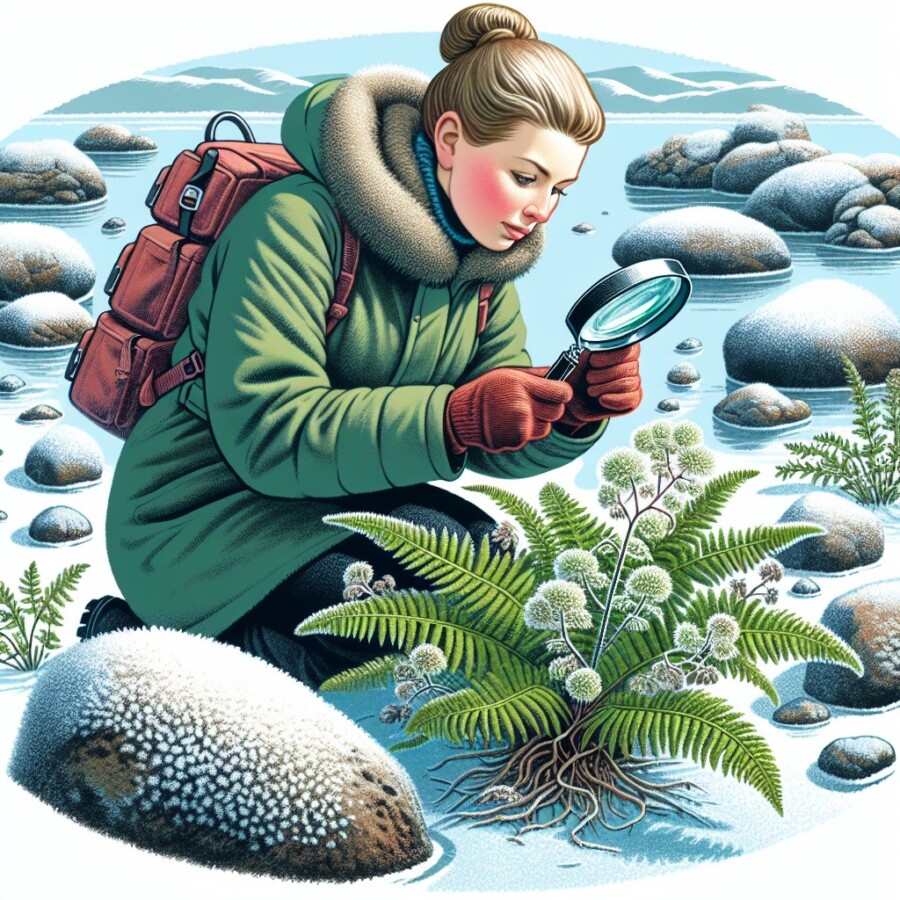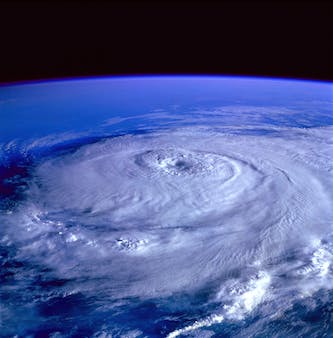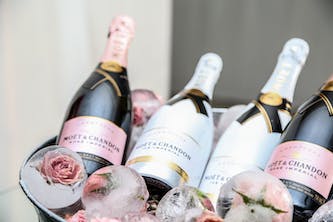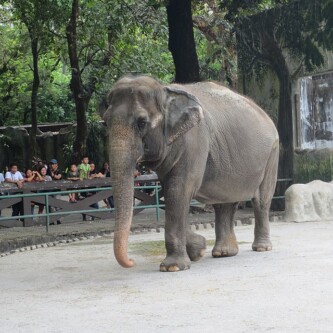Rosemary Parslow, who really loves nature, spent Christmas on the Isles of Scilly looking for a rare fern that blooms in the winter. While most people were celebrating with family and friends, Rosemary was crawling on the frozen ground, determined to find this endangered plant. Her trips to find the fern have confused her three children, who thought she was a bit crazy. But Rosemary is determined to teach the next generation about conservation and has spent many years mapping rare and precious plants on the islands.
The Isles of Scilly are a group of islands near Cornwall. There are over 100 islands, but most of them don’t have people living on them. These islands have a special natural history, with rare wildflowers, important seabirds, and strange sea creatures. Rosemary first visited the islands in 1958 and fell in love with them. She eventually found the rare fern, called the least adder’s-tongue fern, growing on a small piece of land. This plant is only 2cm tall and has leaves the size of a human fingernail. It gets its name because it looks like a snake’s tongue and appears in winter to make spores.
While looking for another rare plant, Rosemary had a really scary experience. She almost drowned when she jumped from a rubber boat onto the rocks of a faraway island and fell into the water. Luckily, she was able to swim to a boat and keep studying for the rest of the day. Rosemary has faced challenges throughout her career, like having to quit her job at the Natural History Museum when she got married and started a family. But she kept working in natural history, drawing pictures for books and writing about the natural history of the islands.
Now 87 years old and retired, Rosemary still maps the coasts and heaths of the islands. She has seen many plants decline because of climate change, especially the ones found near the shore. She’s worried that some plants may have gone extinct, like the shore dock. This year, she also saw transparent jellyfish and rare sea squirts, which show that the climate is changing. Even with these challenges, Rosemary’s love for nature has been recognized with a special medal from the Wildlife Trusts.
Rosemary’s kids will carry on her work and love for the Isles of Scilly. Her youngest daughter, Helen, even became an archaeologist. Rosemary recently went to St Agnes, where the fern still grows, and showed others where to find it using the maps she made in the past. She hopes that someone else will keep an eye on the fern in the future.
Original news source: The woman who spent Christmas in search of a rare plant (BBC)
🎧 Listen:
Slow
Normal
Fast
📖 Vocabulary:
| 1 | conservation | The protection and preservation of the environment or wildlife |
| 2 | endangered | At risk of disappearing or no longer existing |
| 3 | precious | Very valuable and important |
| 4 | seabirds | Birds that live near the sea and often feed on fish |
| 5 | spores | Tiny cells that plants produce to reproduce or spread |
| 6 | rubber | Made from a flexible material that can stretch and bend |
| 7 | challenges | Difficult situations that require effort to overcome |
| 8 | heaths | Open areas of land with low-growing shrubs and plants |
| 9 | decline | To decrease in number, strength, or quality |
| 10 | extinct | No longer alive or in existence |
| 11 | transparent | Able to be seen through; clear |
| 12 | squirts | Small marine animals that shoot out water or other substances |
| 13 | recognized | Given an award or praise for something done well |
| 14 | archaeologist | A scientist who studies human history by digging up and examining old objects |
| 15 | maps | Drawings or diagrams that show the positions of things, especially roads, rivers, and buildings |
Group or Classroom Activities
Warm-up Activities:
– News Summary
Instructions: Have students read the article individually or in pairs. Then, ask them to write a summary of the article in their own words, highlighting the main points and key details. Afterward, have students share their summaries with a partner or in small groups and compare and discuss their summaries.
– Opinion Poll
Instructions: Divide the class into small groups. Give each group a list of questions related to the article, such as “Do you think it’s important to protect endangered plants?” or “Would you be willing to crawl on the frozen ground to find a rare fern?” Have each group discuss their opinions on the questions and come up with a consensus within their group. Then, have each group report their findings to the whole class.
– Sketch It
Instructions: Provide students with a blank sheet of paper and ask them to draw a sketch or illustration that represents the article. Encourage them to be creative and use their imagination. Afterward, have students share their sketches with a partner or in small groups and explain the reasoning behind their drawings.
– Vocabulary Pictionary
Instructions: Select a list of vocabulary words from the article, such as “conservation,” “endangered,” or “spores.” Divide the class into pairs or small groups. Give each group a vocabulary word and ask them to draw a picture that represents the word. The other members of the group must try to guess the word based on the drawing. Rotate the roles within the group so that each student has a chance to draw and guess.
– Future Predictions
Instructions: Have students discuss in pairs or small groups what they think the future holds for the Isles of Scilly and the rare fern. Encourage them to consider factors such as climate change, conservation efforts, and the impact of human activity. Afterward, have each group share their predictions with the class and engage in a class discussion about the different perspectives and ideas.
🤔 Comprehension Questions:
1. Why did Rosemary spend Christmas on the Isles of Scilly?
2. How did Rosemary’s trips to find the fern confuse her children?
3. What makes the Isles of Scilly special in terms of natural history?
4. How did Rosemary almost drown while looking for a rare plant?
5. What challenges did Rosemary face in her career in natural history?
6. Why is Rosemary worried about some plants going extinct?
7. How has Rosemary’s love for nature been recognized?
8. What does Rosemary hope someone else will do in the future?
Go to answers ⇩
🎧✍️ Listen and Fill in the Gaps:
Rosemary Parslow, who really loves nature, spent Christmas on the Isles of Scilly looking for a rare fern that blooms in the (1)______. While most people were celebrating with (2)______ and friends, Rosemary was crawling on the frozen ground, determined to find this endangered plant. Her (3)______ to find the fern have confused her three children, who thought she was a bit crazy. But Rosemary is determined to teach the next generation about conservation and has spent many years mapping rare and precious plants on the (4)______.
The Isles of Scilly are a group of islands near Cornwall. There are over 100 islands, but most of them don’t have (5)______ living on them. These islands have a special natural history, with rare wildflowers, important seabirds, and strange sea creatures. Rosemary first visited the islands in 1958 and fell in love with them. She eventually found the rare fern, (6)______ the least adder’s-tongue fern, (7)______ on a small piece of land. This plant is only 2cm tall and has leaves the size of a human fingernail. It gets its name because it looks like a snake’s tongue and (8)______ in winter to make spores.
While looking for another rare plant, Rosemary had a really scary experience. She almost drowned when she jumped from a rubber boat onto the rocks of a (9)______ island and fell into the water. Luckily, she was able to swim to a boat and keep studying for the rest of the day. Rosemary has faced challenges throughout her career, like having to quit her job at the (10)______ History Museum when she got married and started a family. But she kept working in natural history, drawing pictures for books and writing about the natural history of the islands.
Now 87 years old and retired, Rosemary still maps the coasts and (11)______ of the islands. She has seen many plants decline because of climate (12)______, especially the ones found near the shore. She’s worried that some plants may have gone extinct, like the (13)______ dock. This year, she also saw transparent jellyfish and rare sea (14)______, which show that the (15)______ is changing. Even with these challenges, Rosemary’s love for nature has been (16)______ with a special medal from the Wildlife Trusts.
Rosemary’s kids will carry on her work and love for the Isles of Scilly. Her youngest daughter, Helen, even became an archaeologist. Rosemary recently went to St Agnes, where the fern still grows, and showed others where to find it using the maps she made in the past. She hopes that someone else will keep an eye on the fern in the future.
Go to answers ⇩
💬 Discussion Questions:
Students can ask a partner these questions, or discuss them as a group.
1. What is a rare fern?
2. How would you feel if you had to spend Christmas crawling on the frozen ground?
3. Do you like nature? Why or why not?
4. Do you think it’s important to teach the next generation about conservation? Why or why not?
5. What is the Isle of Scilly known for?
6. How would you feel if you fell into the water while exploring a faraway island?
7. Do you think it’s important to preserve rare plants and animals? Why or why not?
8. What challenges do you think Rosemary faced in her career?
9. How do you think climate change affects plants and animals?
10. How would you feel if you received a special medal for your love of nature?
11. Do you think it’s important for children to continue their parents’ work? Why or why not?
12. How would you feel if you discovered a rare plant or animal?
13. Do you think it’s important for people to study and understand natural history? Why or why not?
14. How would you feel if you were able to help others find a rare plant or animal?
15. Do you think it’s important for someone to continue monitoring the fern in the future? Why or why not?
Individual Activities
📖💭 Vocabulary Meanings:
Match each word to its meaning.
Words:
1. conservation
2. endangered
3. precious
4. seabirds
5. spores
6. rubber
7. challenges
8. heaths
9. decline
10. extinct
11. transparent
12. squirts
13. recognized
14. archaeologist
15. maps
Meanings:
(A) Drawings or diagrams that show the positions of things, especially roads, rivers, and buildings
(B) Made from a flexible material that can stretch and bend
(C) Given an award or praise for something done well
(D) Difficult situations that require effort to overcome
(E) Tiny cells that plants produce to reproduce or spread
(F) Birds that live near the sea and often feed on fish
(G) At risk of disappearing or no longer existing
(H) Very valuable and important
(I) A scientist who studies human history by digging up and examining old objects
(J) Open areas of land with low-growing shrubs and plants
(K) Able to be seen through; clear
(L) No longer alive or in existence
(M) To decrease in number, strength, or quality
(N) The protection and preservation of the environment or wildlife
(O) Small marine animals that shoot out water or other substances
Go to answers ⇩
🔡 Multiple Choice Questions:
1. What was Rosemary Parslow looking for on the Isles of Scilly during Christmas?
(a) Seabirds
(b) Wildflowers
(c) Sea creatures
(d) A rare fern
2. How many islands are there in the Isles of Scilly?
(a) Over 100
(b) 50
(c) 10
(d) 5
3. What is the name of the rare fern that Rosemary found?
(a) Snake’s tongue fern
(b) Least adder’s-tongue fern
(c) Winter spore fern
(d) Endangered fern
4. What happened to Rosemary when she jumped from a rubber boat onto the rocks?
(a) She found the rare plant
(b) She almost drowned
(c) She injured herself
(d) She lost her map
5. Why did Rosemary have to quit her job at the Natural History Museum?
(a) She didn’t like her job
(b) She wanted to study plants on the islands
(c) She wanted to become an archaeologist
(d) She got married and started a family
6. What is Rosemary worried about regarding the plants on the islands?
(a) They are growing too fast
(b) They are taking over the islands
(c) Some may have gone extinct
(d) They are not getting enough sunlight
7. What did Rosemary see this year that shows the climate is changing?
(a) Transparent jellyfish and rare sea squirts
(b) Endangered birds
(c) Blooming wildflowers
(d) Declining plants
8. What did Rosemary’s youngest daughter become?
(a) A botanist
(b) A wildlife photographer
(c) An archaeologist
(d) A marine biologist
Go to answers ⇩
🕵️ True or False Questions:
1. Rosemary’s love for nature has not been recognized with a special medal from the Wildlife Trusts.
2. Rosemary’s kids will not continue her work and love for the Isles of Scilly.
3. The Isles of Scilly are a group of islands near Cornwall, with over 100 islands.
4. Rosemary is now 87 years old and retired but still maps the coasts and heaths of the islands.
5. The fern she was looking for is called the least adder’s-tongue fern and only grows in the winter.
6. Rosemary faced no challenges in her career, including having to quit her job at the Natural History Museum.
7. Rosemary Parslow spent Christmas on the Isles of Scilly searching for a rare fern.
8. Rosemary first visited the islands in 1958 and did not fall in love with them.
Go to answers ⇩
📝 Write a Summary:
Write a summary of this news article in two sentences.
Check your writing now with the best free AI for English writing!
Writing Questions:
Answer the following questions. Write as much as you can for each answer.
Check your answers with our free English writing assistant!
1. What was Rosemary Parslow looking for on the Isles of Scilly during Christmas?
2. How did Rosemary’s children feel about her trips to find the rare fern?
3. Where are the Isles of Scilly located?
4. What is the name of the rare fern that Rosemary found on the islands?
5. Why did Rosemary have to quit her job at the Natural History Museum?
✅ Answers
🤔✅ Comprehension Question Answers:
1. Why did Rosemary spend Christmas on the Isles of Scilly?
Rosemary spent Christmas on the Isles of Scilly to search for a rare fern that blooms in the winter.
2. How did Rosemary’s trips to find the fern confuse her children?
Rosemary’s trips to find the fern confused her children because they thought she was a bit crazy for crawling on the frozen ground instead of celebrating Christmas with family and friends.
3. What makes the Isles of Scilly special in terms of natural history?
The Isles of Scilly are special in terms of natural history because they have rare wildflowers, important seabirds, and strange sea creatures. They also have a unique natural history due to their location near Cornwall.
4. How did Rosemary almost drown while looking for a rare plant?
Rosemary almost drowned while looking for a rare plant when she jumped from a rubber boat onto the rocks of a faraway island and fell into the water. Luckily, she was able to swim to a boat and continue her studies.
5. What challenges did Rosemary face in her career in natural history?
Rosemary faced challenges in her career in natural history, such as having to quit her job at the Natural History Museum when she got married and started a family. However, she continued working in natural history by drawing pictures for books and writing about the natural history of the islands.
6. Why is Rosemary worried about some plants going extinct?
Rosemary is worried about some plants going extinct because she has seen many plants decline due to climate change, especially those found near the shore. She is concerned that some plants may have already gone extinct, such as the shore dock.
7. How has Rosemary’s love for nature been recognized?
Rosemary’s love for nature has been recognized with a special medal from the Wildlife Trusts. This recognition acknowledges her dedication to conservation and her efforts in mapping rare and precious plants on the Isles of Scilly.
8. What does Rosemary hope someone else will do in the future?
Rosemary hopes that someone else will keep an eye on the fern in the future. She recently went to St Agnes, where the fern still grows, and showed others where to find it using the maps she made in the past.
Go back to questions ⇧
🎧✍️✅ Listen and Fill in the Gaps Answers:
(1) winter
(2) family
(3) trips
(4) islands
(5) people
(6) called
(7) growing
(8) appears
(9) faraway
(10) Natural
(11) heaths
(12) change
(13) shore
(14) squirts
(15) climate
(16) recognized
Go back to questions ⇧
📖💭✅ Vocabulary Meanings Answers:
1. conservation
Answer: (N) The protection and preservation of the environment or wildlife
2. endangered
Answer: (G) At risk of disappearing or no longer existing
3. precious
Answer: (H) Very valuable and important
4. seabirds
Answer: (F) Birds that live near the sea and often feed on fish
5. spores
Answer: (E) Tiny cells that plants produce to reproduce or spread
6. rubber
Answer: (B) Made from a flexible material that can stretch and bend
7. challenges
Answer: (D) Difficult situations that require effort to overcome
8. heaths
Answer: (J) Open areas of land with low-growing shrubs and plants
9. decline
Answer: (M) To decrease in number, strength, or quality
10. extinct
Answer: (L) No longer alive or in existence
11. transparent
Answer: (K) Able to be seen through; clear
12. squirts
Answer: (O) Small marine animals that shoot out water or other substances
13. recognized
Answer: (C) Given an award or praise for something done well
14. archaeologist
Answer: (I) A scientist who studies human history by digging up and examining old objects
15. maps
Answer: (A) Drawings or diagrams that show the positions of things, especially roads, rivers, and buildings
Go back to questions ⇧
🔡✅ Multiple Choice Answers:
1. What was Rosemary Parslow looking for on the Isles of Scilly during Christmas?
Answer: (d) A rare fern
2. How many islands are there in the Isles of Scilly?
Answer: (a) Over 100
3. What is the name of the rare fern that Rosemary found?
Answer: (b) Least adder’s-tongue fern
4. What happened to Rosemary when she jumped from a rubber boat onto the rocks?
Answer: (b) She almost drowned
5. Why did Rosemary have to quit her job at the Natural History Museum?
Answer: (d) She got married and started a family
6. What is Rosemary worried about regarding the plants on the islands?
Answer: (c) Some may have gone extinct
7. What did Rosemary see this year that shows the climate is changing?
Answer: (a) Transparent jellyfish and rare sea squirts
8. What did Rosemary’s youngest daughter become?
Answer: (c) An archaeologist
Go back to questions ⇧
🕵️✅ True or False Answers:
1. Rosemary’s love for nature has not been recognized with a special medal from the Wildlife Trusts. (Answer: False)
2. Rosemary’s kids will not continue her work and love for the Isles of Scilly. (Answer: False)
3. The Isles of Scilly are a group of islands near Cornwall, with over 100 islands. (Answer: True)
4. Rosemary is now 87 years old and retired but still maps the coasts and heaths of the islands. (Answer: True)
5. The fern she was looking for is called the least adder’s-tongue fern and only grows in the winter. (Answer: True)
6. Rosemary faced no challenges in her career, including having to quit her job at the Natural History Museum. (Answer: False)
7. Rosemary Parslow spent Christmas on the Isles of Scilly searching for a rare fern. (Answer: True)
8. Rosemary first visited the islands in 1958 and did not fall in love with them. (Answer: False)
Go back to questions ⇧















